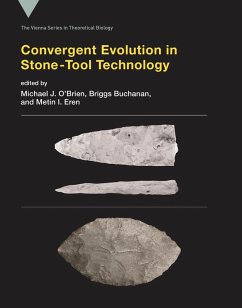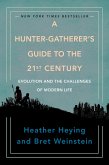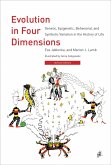Hominins began using stone tools at least 2.6 million years ago, perhaps even 3.4 million years ago. Given the nearly ubiquitous use of stone tools by humans and their ancestors, the study of lithic technology offers an important line of inquiry into questions of evolution and behavior. This book examines convergence in stone tool-making, cases in which functional or developmental constraints result in similar forms in independent lineages. Identifying examples of convergence, and distinguishing convergence from divergence, refutes hypotheses that suggest physical or cultural connection between far-flung prehistoric toolmakers. Employing phylogenetic analysis and stone-tool replication, the contributors show that similarity of tools can be caused by such common constraints as the fracture properties of stone or adaptive challenges rather than such unlikely phenomena as migration of toolmakers over an Arctic ice shelf.
Contributors R. Alexander Bentley, Briggs Buchanan, Marcelo Cardillo, Mathieu Charbonneau, Judith Charlin, Chris Clarkson, Loren G. Davis, Metin I. Eren, Peter Hiscock, Thomas A. Jennings, Steven L. Kuhn, Daniel E. Lieberman, George R. McGhee, Alex Mackay, Michael J. O'Brien, Charlotte D. Pevny, Ceri Shipton, Ashley M. Smallwood, Heather Smith, Jayne Wilkins, Samuel C. Willis, Nicolas Zayns
Dieser Download kann aus rechtlichen Gründen nur mit Rechnungsadresse in A, B, BG, CY, CZ, D, DK, EW, E, FIN, F, GR, HR, H, IRL, I, LT, L, LR, M, NL, PL, P, R, S, SLO, SK ausgeliefert werden.









